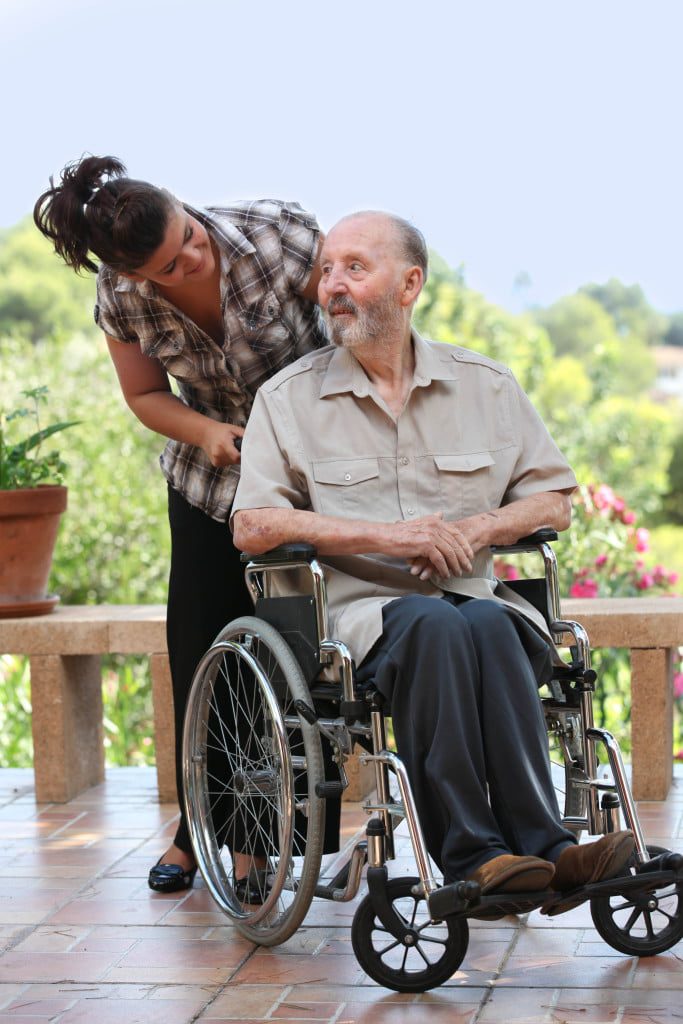 Regardless of the person that you’re caring for or the extent of your role, caregiving is a huge responsibility. It is also a situation that people often underestimate.
Regardless of the person that you’re caring for or the extent of your role, caregiving is a huge responsibility. It is also a situation that people often underestimate.
To make matters worse, caregivers themselves often underestimate their role and don’t fully realize their own significance or the challenges that they are facing.
This pattern is a detrimental one. After all, if we don’t realize the challenges that we are going through, we don’t look for ways to protect or strengthen ourselves either.
One example of this is cases where your caregiving role requires relatively few physical tasks. This can be especially common if you are caring for an elderly parent, as they may still be able to do most things for themselves, including wash and go to the bathroom.
For the most part, your responsibility may simply be keeping them company and being there in case something serious happens, like a fall.
Regardless of the physical demands of a caregiving role, the truth is that all caregiving is difficult. In particular, caregiving produces significant mental strain, especially if you are caring for the same person for many years.
With some conditions, that person’s health may deteriorate, forcing you to take on new roles over time and also to confront new concepts and challenges. However, other conditions may remain relatively consistent over time.
Each situation brings its own mental strain and challenges.
 At the same time, caregiving is emotional.
At the same time, caregiving is emotional.
Nobody is perfect, including you – and caregiving will tend to bring out the best and the worst in you. Sometimes you may be angry or scared or bitter, while other times you may simply be thankful for the time you have with the person you are caring for.
All of those emotions are valid.
Clearly, you don’t want to be angry or bitter at the person you are caring for, as that may simply make things worse. However, bottling up those emotions and pretending they don’t exist isn’t the answer either.
It’s also worth noting that you won’t always get things right.
Caregiving involves a lot of decisions and often you won’t know what decision is best for a given set of circumstances. For example, how do you tackle conversations about driving when it is becoming dangerous for a senior to drive but they don’t want to give up their independence?
Likewise, how do you deal with stubborn aging parents, especially those that are set in their ways and refuse to budge? For patients with dementia, learning how to accept their reality can help to relieve tension and make progress. But, even this often won’t help resolve crises.
More than anything, the answer is to do your best.
Seek help where you can, from online support groups and discussion boards, as well as from family members and people who interact with the patient, like doctors and nurses.
But, also be aware that none of us are perfect.
So, the solution that you choose may not be the right one. Or, you may choose the best option out of the ones at hand but it may not work out the way that you hope for.
In some cases, trying to resolve a situation can even make things worse.
My Own Experience
One example of the way that solutions can backfire comes from my own experiences as a caregiver.
Now, I was an unofficial caregiver for my mother-in-law for a period of a few years. I say unofficial because I did many of the tasks of being a caregiver but she would never have viewed me as one. Instead, she fiercely clung to the idea of being independent, saying that she ‘didn’t want to’ do certain tasks, rather than acknowledging that she no longer could.
One ongoing problem we had was food versus health.
 If I left her to prepare her own food, she would either choose not to eat or she would rely exclusively on heavily processed frozen dinners.
If I left her to prepare her own food, she would either choose not to eat or she would rely exclusively on heavily processed frozen dinners.
Her preference was towards options that tended to be high in calories and low in nutrients.
Not only is this an unhealthy practice in general, it was expressly against doctor’s orders – as she was supposed to be carefully watching sodium intake and calories overall.
The only real solution, in that case, was for me to prepare every meal for her.
In theory, that worked great but it introduced a whole set of new issues. This included the fact that she didn’t always like what I cooked, that she was often moody and would periodically get upset at the whole concept.
It also didn’t help in the long run, as she simply ended up eating more junk food to satisfy herself emotionally.
For myself, making meals constantly was a major challenge because of my schedule and workload at that point in time. So, it was never a solution that could be sustained.
In many ways, this was a situation that did not have a feasible solution, at least not at that point in time. At the end of the day, I found that I had to acknowledge my own limitations and let go of the desire to completely control the situation.
While I wanted my mother-in-law to be healthy, it wasn’t something that I could brute force, especially not when she wanted her own independence so badly.
I’m not sure that I made things worse by changing the way we dealt with food but I certainly didn’t resolve the original problems.
Don’t Be Too Hard On Yourself
At the end of the day, we’re all human.
Regardless of your situation, you are going to make mistakes as a caregiver and there will always be some problems that you can’t fully resolve.
That doesn’t make you a failure.
Caregiving itself is a highly intense role, especially as it can stretch on for many years.
 You will that you get drained physically and emotionally over that time. That draining can also be subtle, so many people don’t even realize that it’s happening.
You will that you get drained physically and emotionally over that time. That draining can also be subtle, so many people don’t even realize that it’s happening.
In fact, it often isn’t until something dramatically changes that we realize how much we were struggling.
For example, sometimes getting a solution to a problem can feel like a weight has been removed. Yet, until that point, you may not have even been aware that there was a weight in the first place.
There are solutions though.
The first is simply to not expect too much of yourself.
There is only so much you can do as a caregiver and you’ll never be perfect. None of us are.
Doing the best that you can is really the only option. What you’re doing is making a huge difference to the person you are caring for – even if they don’t realize or acknowledge that.
The second thing to do is seek support.
There are lots of other people out there in similar situations. In fact, estimates suggest that there are close to 40 million Americans acting as caregivers for adults. Many of these caregivers are female and a large number of them are unpaid.
There are a number of support forums online where you can communicate with other caregivers.
Likewise, you can turn to other family members and friends.
One thing that I’ve found is that it is important to have some people that you can be honest with. This may even mean complaining about your situation or specific challenges.
Getting those emotions out and talking about them is critical to your own mental health and it also helps you to deal with them. Otherwise, you risk feeling and acting on those emotions in inappropriate situations.
 The final thing that we suggest is taking care of yourself.
The final thing that we suggest is taking care of yourself.
Caregivers are often short on time and on energy, so it can be easy to focus entirely on the person that you’re caring for, rather than on your own needs. This may make sense in the short-term but it’s an ineffective technique in the long-term.
If you put off your own needs, then your ability to care for others is going to decrease dramatically too.
So, if you want to be an effective caregiver, you actually have to put your own needs first.
This includes taking a break when you need it and finding ways to take a night out from time to time. Doing so can help you to avoid caregiver stress and burnout.
Otherwise, you risk crashing and burning, especially as caregiving is extremely stressful at the best of times. Not only is this bad for you but it also affects your ability to be a caregiver.
As such, you’re putting the person that you’re caring for at risk if you don’t take care of yourself too.
From my own experience, I know that trying to meet your own needs can often feel selfish. In many cases, I found myself thinking that it would be better to use this money or this time on the person that I was caring for.
That pattern of thinking is common across caregivers.
Yet, it’s also dangerous.
You really do need to take care of yourself and that includes your own wants as well as your own needs. For example, little luxuries like a box of chocolates or a bouquet of flowers can be critical to your own mental health.
And, if you plan around supporting yourself, it can be surprisingly easy to do.
So, do take time for your own needs and reach out to others. Be easy on yourself too because at the end of the day nobody is perfect and you’re never going to get everything completely right all of the time.

Leave a Reply